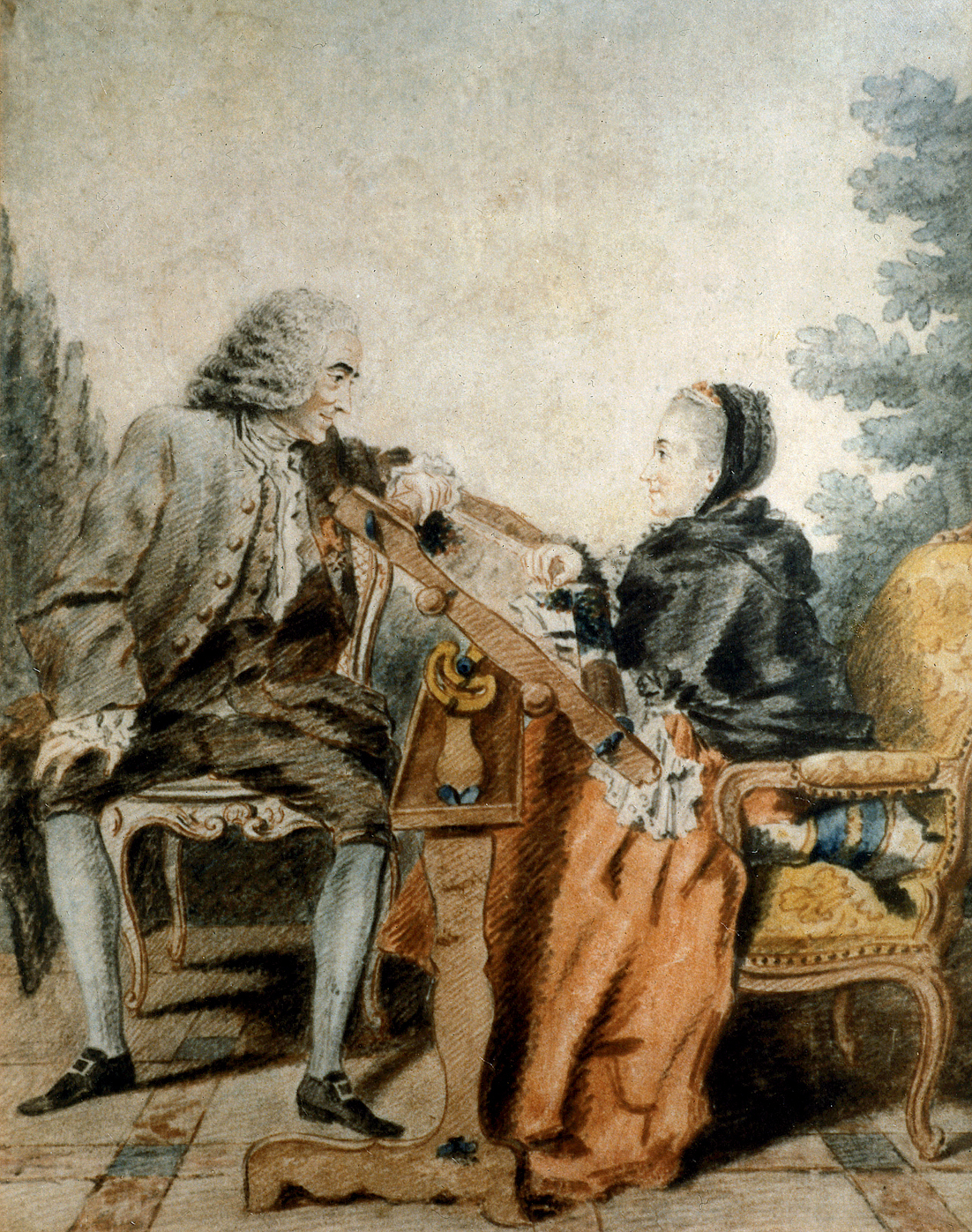A History of World Societies:
Printed Page 566
A History of World Societies Value
Edition: Printed Page 568
The Influence of the Philosophes
Divergences among the early thinkers of the Enlightenment show that, while they shared many of the same premises and questions, the answers they found differed widely. The spread of this spirit of inquiry and debate owed a great deal to the work of the philosophes, a group of influential intellectuals in France who proudly proclaimed that they were bringing the light of knowledge to their ignorant fellow creatures.
To appeal to the public and get around the censors, the philosophes wrote novels and plays, histories and philosophies, and dictionaries and encyclopedias, all filled with satire and double meanings to spread their message. One of the greatest philosophes, the baron de Montesquieu (mahn-
Disturbed by the growth in royal power under Louis XIV and inspired by the example of the physical sciences, Montesquieu set out to apply the critical method to the problem of government in The Spirit of Laws (1748). Arguing that forms of governments were shaped by history, geography, and customs, Montesquieu identified three main types: monarchies, republics, and despotisms. A great admirer of the English parliamentary system, Montesquieu argued for a separation of powers, with political power divided among different classes and legal estates holding unequal rights and privileges. Montesquieu was no democrat; he was apprehensive about the uneducated poor, and he did not question the sovereignty of the French monarch. But he was concerned that absolutism in France was drifting into tyranny and believed that strengthening the influence of intermediary powers was the best way to prevent it. Decades later, his theory of separation of powers had a great impact on the constitutions of the United States in 1789 and of France in 1791.
The most famous philosophe was François-

Returning to France, Voltaire met Gabrielle-
While living at Cirey, Voltaire wrote works praising England and popularizing English scientific progress. Yet, like almost all the philosophes, Voltaire was a reformer, not a revolutionary. He pessimistically concluded that the best form of government was a good monarch, since human beings “are very rarely worthy to govern themselves.” Nor did Voltaire believe in social and economic equality. The only realizable equality, Voltaire thought, was that “by which the citizen only depends on the laws which protect the freedom of the feeble against the ambitions of the strong.”3
Voltaire’s philosophical and religious positions were much more radical. Voltaire believed in God, but he rejected Catholicism in favor of deism, belief in a distant, noninterventionist deity. Drawing on mechanistic philosophy, he envisioned a universe in which God acted like a great clockmaker who built an orderly system and then stepped aside and let it run. Above all, Voltaire and most of the philosophes hated religious intolerance, which they believed led to fanaticism and cruelty.
| Baruch Spinoza | Early Enlightenment thinker excommunicated from the Jewish community for his concept of a deterministic universe |
| John Locke | Essay Concerning Human Understanding (1690) |
| Gottfried Wilhelm von Leibniz | Early German rational philosopher and scientist |
| Pierre Bayle | Historical and Critical Dictionary (1697) |
| Montesquieu | The Persian Letters (1721); The Spirit of Laws (1748) |
| Voltaire | Renowned French philosophe and author of more than seventy works |
| Marquise du Châtelet | French scholar and supporter of equal education for women |
| David Hume | Central figure of the Scottish Enlightenment |
| Jean- |
The Social Contract (1762) |
| Denis Diderot andJean le Rond d’Alembert | Editors of Encyclopedia: The Rational Dictionary of the Sciences, the Arts, and the Crafts (1765) |
| Adam Smith | Author of An Inquiry into the Nature and Causes of the Wealth of Nations (1776) |
| Immanuel Kant | What Is Enlightenment? (1784); On the Different Races of Man (1775) |
The strength of the philosophes lay in their number, dedication, and organization. Their greatest achievement was a group effort — the seventeen-
Completed in 1765 despite opposition from the French state and the Catholic Church, the Encyclopedia contained hundreds of thousands of articles by leading scientists, writers, skilled workers, and progressive priests. Science and the industrial arts were exalted, religion and immortality questioned. Intolerance, legal injustice, and out-
After about 1770 a number of thinkers and writers began to attack the philosophes’ faith in reason and progress. The most famous of these was the Swiss intellectual Jean-
Rousseau also called for a rigid division of gender roles, arguing that women and men were radically different beings. According to Rousseau, because women were destined by nature to assume a passive role in sexual relations, they should also be passive in social life and devote themselves to taking care of their husbands and children. (See “Viewpoints 19.1: Jean-Jacques Rousseau and Mary Wollstonecraft on Women’s Nature and Education.”) Additionally, he believed that women’s love for displaying themselves in public, attending salons, and pulling the strings of power was unnatural and had a corrupting effect on both politics and society.
Rousseau’s contribution to political theory in The Social Contract (1762) was based on two fundamental concepts: the general will and popular sovereignty. According to Rousseau, the general will is sacred and absolute, reflecting the common interests of all people, who have displaced the monarch as the holder of sovereign power. The general will is not necessarily the will of the majority, however. At times the general will may be the authentic, long-